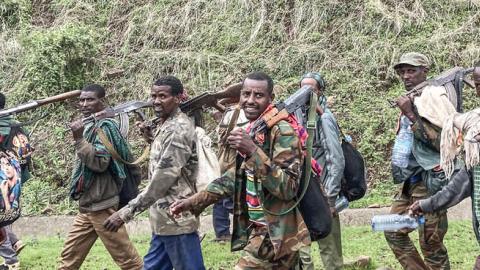Preoccupied by the pandemic, climate change and the intensifying rivalry between the U.S. and China, policy makers and pundits aren’t paying enough attention to the news in Africa. That is a mistake. What is happening on the continent offers insights into the destructive role identity politics seems destined to play in world politics.
While every African country has its own history and culture, a common trait to many is the presence of dozens of ethnic and language groups with proud histories and strong identities. When independence came, these new states kept their colonial borders. Most felt that once boundaries are up for grabs, endless claims and counterclaims easily can lead to endless wars. Tribalism was widely condemned as primitive and atavistic, and the assumption was that a developing Africa would leave all that behind and form modern national identities.
That assumption turned out to be wrong. Instead of fading away, in many countries separatist movements are gaining strength and central governments are failing. It is more than the old tribes. Islam and Christianity have exploded across the postcolonial continent. Traditional ethnic identities and rivalries often get pulled into the framework of a Christian-Muslim conflict. In Nigeria this antipathy has led to tens of thousands of deaths and there is no sign that the central government can quell the violence. And it isn’t the only postcolonial state failing to control this sort of religious-ethnic strife, as jihadists fan out across Africa, from the Sahel to northern Mozambique.
In South Africa the struggle against apartheid created one of the strongest multi-ethnic common identities in Africa. Yet this summer the country was shaken when mostly Zulu supporters of former president Jacob Zuma staged what some called an insurrection to protest his imprisonment on corruption charges.
Read the full article in the Wall Street Journal

















